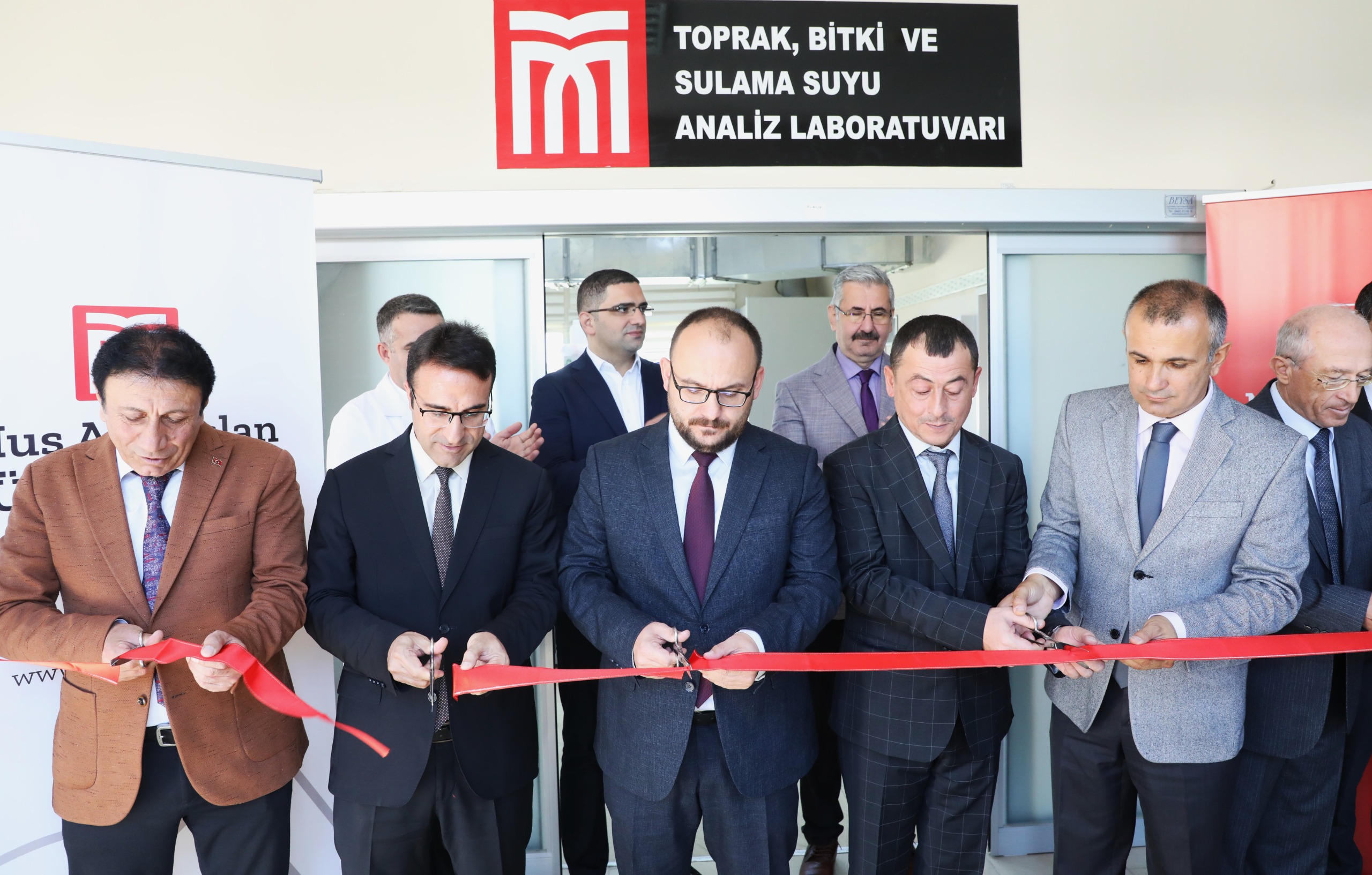

Muş Alparslan University has opened the Soil, Plant and Irrigation Water Analysis Laboratory in order to increase the agricultural production capacity of the region and to support sustainable agricultural practices.
This important laboratory will contribute to the more conscious and efficient conduct of agricultural activities in the region. The opening was attended by our Rector Prof. Dr. Mustafa Alican, Vice Rectors Prof. Dr. Kenan Yıldırım and Prof. Dr. Talat Körpınar, Dean of the Faculty of Applied Sciences Prof. Dr. Yunus Levent Ekinci, Secretary General Harun Demir, unit managers, academic and administrative staff and many students.
Scientific Support to the Agricultural Sector
Speaking at the opening ceremony, our Rector Prof. Dr. Mustafa Alican stated that the laboratory will provide scientific support to local farmers in order to increase agricultural productivity. Our Rector Alican said, “This laboratory will guide farmers by conducting soil, plant and irrigation water analyses to solve problems in the field of agriculture. In this way, it will be possible to improve soil structure and increase product quality with correct fertilization methods.”
Significant Contribution to the Agricultural Development of the Region
Our Rector Prof. Dr. Mustafa Alican stated that the benefits the laboratory will provide to the region will not be limited to agricultural production only, but will also support economic development. “Muş has a very high agricultural potential, however, problems such as incorrect agricultural practices and climate change can negatively affect productivity. This laboratory will contribute to agricultural activities becoming more efficient in light of scientific data,” he said.
Comprehensive Analyses
Among the services provided by the laboratory are basic soil analyses such as pH, salt, lime, organic matter, nitrogen, phosphorus and potassium. In addition, analyses of trace elements such as iron, zinc, copper and calcium can be performed upon the request of farmers. Our Rector Alican emphasized that heavy metal analyses such as lead and cadmium can also be performed for regions suspected of pollution.
Scientific Solutions for Sustainable Agriculture
Our Rector stated that the laboratory will make farmers in the region more conscious of their agricultural practices and said, “Factors such as soil fertility, efficient use of water resources and climate change can negatively affect agricultural production. The newly opened laboratory will provide scientific data to solve these problems and help agricultural activities become more sustainable,” he said.
It Will Open New Horizons
Alican, who stated that the laboratory will also contribute to the development of agricultural policies by providing important data to scientists, students and local governments, said, “This laboratory will serve the agricultural sector not only in Muş but also in the surrounding provinces, and will provide solution-oriented services by understanding the problems of local producers.”
Emphasis on Pilot State University
Emphasizing that the university is a pilot state university in agriculture and animal husbandry in his opening speech, our Rector also provided information about the Ancient DNA Laboratory and the Bee Laboratory planned to be opened soon.
Finally, our Rector thanked all the guests who attended the opening and wished that the laboratory will make significant contributions to the agricultural development of Muş.





